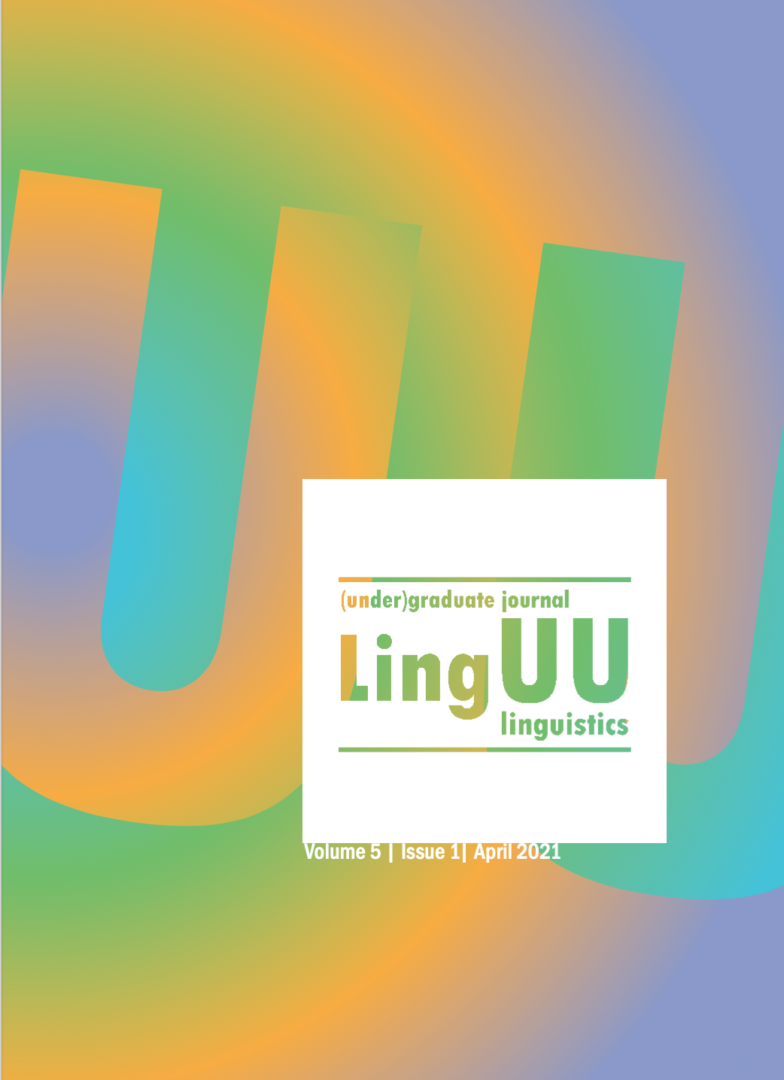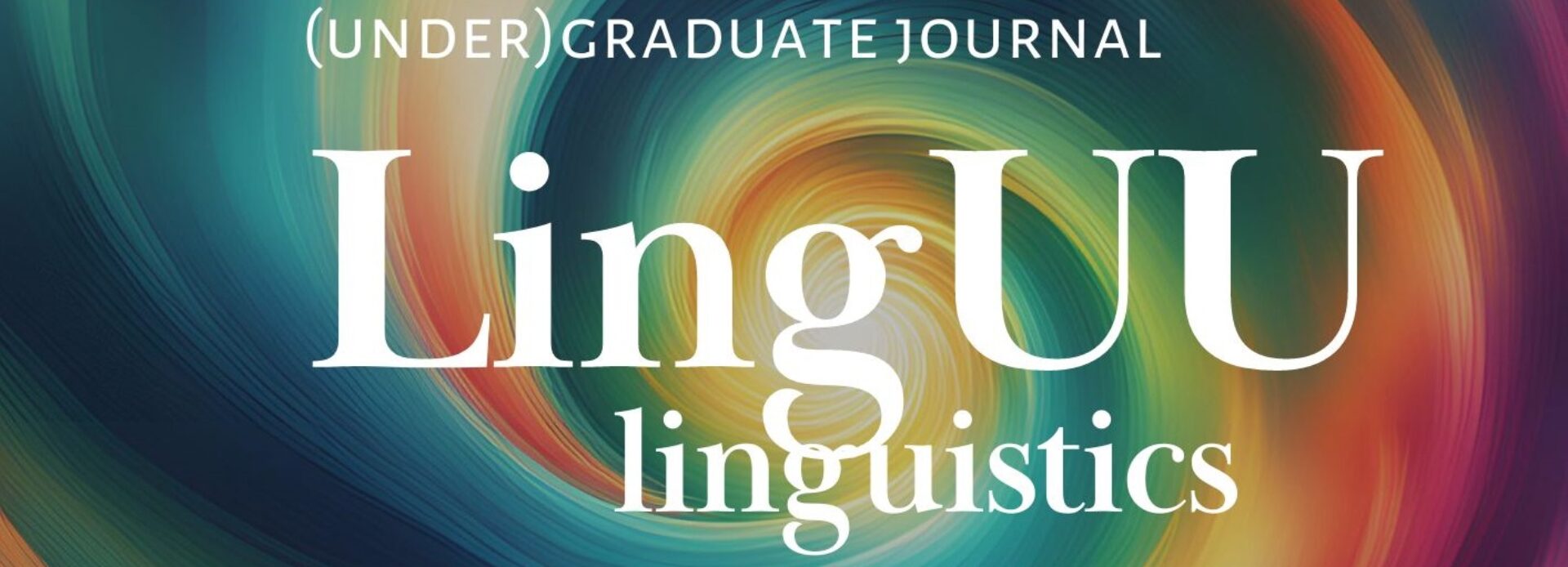
LingUU 5.1 is out now! The 9th issue of LingUU Journal features articles on various linguistic topics, written by students from different BA and MA programmes. Download the entire issue, browse through the contents, or order a paper copy (while supplies last).
The author of this paper, Carolin Tyrchan, wants to account for a parallel structural account of passives and antipassives in languages with a nominative-accusative and absolute-ergative system. The proposed suggestions are motivated by observations from case marking. Based on a critical review of previous accounts, this paper provides a first step towards a unified account of passives and antipassives across alignment systems. This account keeps the required syntactic operations at a minimum and, consequently, ensures simplicity.
Lila Oprins‘ paper deals with the diachronic semantic change of two verbs denoting taste in Dutch, smaken en proeven. Context is the key for discriminating which one is used when. The author explains why and how proeven takes over smaken nowadays by invoking semantics, but most importantly the syntax of the verbs. The exploration of the syntactic environment of the aforementioned verbs, provides illuminating insights on their change over time, recent use and preference of Dutch speakers, adding up to the chain of the verbs’ alternations and current employment.
Through a quest for symmetry, this paper by Lieke Hendriks explores the novel future-to–be construction (such as she is a bride-to-be). To find a theory to explain this construction in syntax, many analyses are examined, and other examples and data is used, because little is known about the future-to-be. Finally, small-clause formation was the best way to explain this novel construction. Small clauses allow subject and predicates to start in one constituent and refer to [NP XP]. To-be is the XP and through predicate inversion, the construction the soon-to-be bride is explained.
Georgios Chatzopoulos writes in Book Review about Wordcrime by John Olsson. This books goes into the world of forensic linguistics using 23 real life cases. According to Chatzopoulos, Olsson writes with passion and determination about what the true meaning of forensic linguistics is. A real recommendation for every reader interested in this relatively unexplored part of linguistics.
The Daily Linguist highlights upcoming conferences, podcasts and other online media about linguistics. In this issue the TABU day on June 10 and 11, the podcast Siencediction and a youtube channel with lectures about aphasia are mentioned.


